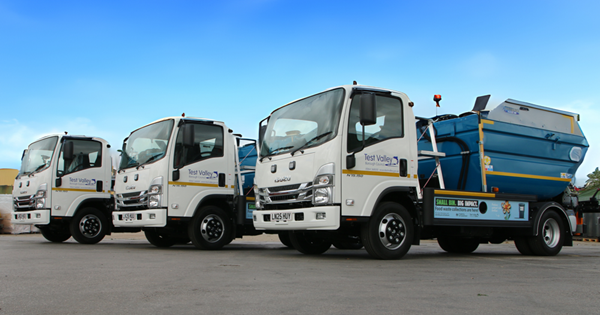Food Waste Collection Service
Weekly food waste collections are here!
For most households, we collect food waste from grey 23 litre kerbside caddies every week, using our new fleet of specialist collection vehicles.

Small 140 litre grey-lidded wheeled bins have been provided to residents who live in flats or other accommodation with bin stores, and who already share their waste and recycling bins.
To help collect food waste and scraps in the home, every household has been given a grey 5 litre kitchen caddy too.
All of the collected food waste is processed at an anaerobic digestion facility where it is broken down by micro-organisms in the absence of oxygen. The methane-rich biogas generated during this process is used to produce heat and electricity, and the remaining product is used as a nutrient rich fertiliser.
We have introduced the food waste collection service as the Environment Act 2021 requires all councils to have food waste collections in place by 1 April 2026. We introduced the collections five months earlier in a positive step towards transforming recycling in the area.

